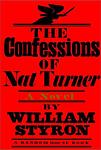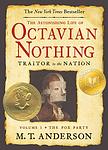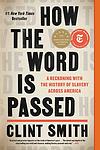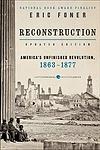The Greatest "American History, Slavery" Books of All Time
Click to learn how this list is calculated.
This list represents a comprehensive and trusted collection of the greatest books. Developed through a specialized algorithm, it brings together 300 'best of' book lists to form a definitive guide to the world's most acclaimed books. For those interested in how these books are chosen, additional details can be found on the rankings page.
Genres
The "American History" category encompasses a broad range of books that delve into the events, figures, and forces that have shaped the United States from its pre-colonial days to the present. This genre includes works on pivotal moments such as the American Revolution, Civil War, and civil rights movements, as well as studies of political, social, and cultural developments across various eras. It covers biographies of influential leaders, analyses of policy changes, and examinations of societal shifts. Whether providing comprehensive overviews or focusing on specific incidents or decades, books in the American History category aim to illuminate the complexities of the nation's past, offering readers insights into the events that have defined the American experience and the context for its ongoing evolution.
The category of "Slavery" in books encompasses works that explore the historical and contemporary experiences of enslaved individuals and their descendants. These books may delve into the economic, social, and political systems that enabled slavery, as well as the cultural and psychological impacts of enslavement on individuals and communities. They may also examine the ongoing legacies of slavery, including systemic racism, inequality, and social injustice. Through a variety of genres, including memoirs, historical fiction, and academic texts, the category of "Slavery" seeks to shed light on this dark chapter of human history and its enduring effects.
Countries
Date Range
Reading Statistics
Click the button below to see how many of these books you've read!
Download
If you're interested in downloading this list as a CSV file for use in a spreadsheet application, you can easily do so by clicking the button below. Please note that to ensure a manageable file size and faster download, the CSV will include details for only the first 500 books.
Download-
1. Roots by Alex Haley
This groundbreaking historical novel follows several generations of an African American family, beginning with Kunta Kinte, a man captured in Gambia in the 18th century and sold into slavery in the United States. Through Kinte and his descendants, the narrative explores the brutal realities of slavery and its aftermath, the struggle for freedom and civil rights, and the perseverance of a family through immense hardship. The story is based on the author's own family history, making it a significant work in the exploration of African American heritage and identity.
-
2. The Confessions of Nat Turner by William Styron
"The Confessions of Nat Turner" is a fictionalized account of a historical event, the 1831 Virginia slave uprising led by Nat Turner. The book is presented as a first-person narrative from Turner's perspective, exploring his life as a slave, his religious visions, and the violent rebellion he led against white slaveholders. The novel delves into the complexities of slavery, morality, and rebellion, while also examining the psychological trauma inflicted by the institution of slavery.
-
3. Incidents in the Life of a Slave Girl by Harriet Jacobs
This book is a poignant autobiography that depicts the life of a young woman born into slavery in the southern United States in the early 19th century. The narrative provides a harrowing account of her childhood and adolescence, marked by abuse and exploitation. In her desperate quest for freedom, she spends seven years in a tiny attic, hiding from her oppressive master. The narrative serves as a powerful critique of the brutalities of slavery, and a testament to the author's indomitable spirit and pursuit of freedom.
-
4. Up from Slavery by Booker T. Washington
The book is an autobiographical account of a former slave who rises to become a prominent educator and speaker. It chronicles his journey from enslavement during his childhood, through his struggles for education and his founding of Tuskegee Institute in Alabama. The narrative emphasizes the importance of education, hard work, and self-reliance as the keys to African American advancement, and provides a firsthand perspective on post-Civil War American South.
-
5. Roll, Jordan, Roll by Eugene Genovese
"Roll, Jordan, Roll" is a comprehensive exploration of slavery in the United States, specifically focusing on the complex relationships between slaves and their masters. The book examines how slaves managed to preserve their culture, humanity and dignity, while also highlighting the paradoxical nature of a system where slave owners were dependent on their slaves for their livelihoods. It delves into the ways in which slaves resisted their oppression, and the strategies they employed to survive and create their own communities within the confines of the brutal institution of slavery.
-
6. The Astonishing Life of Octavian Nothing, Traitor to the Nation, Vol I and II by M.T. Anderson
The book follows the life of Octavian, a young African American boy raised in a strange and secretive environment in Revolutionary-era Boston. He is brought up as part of a philosophical experiment by a group of rationalist scholars who seek to determine the intellectual capacity of Africans. As he matures, Octavian realizes the true nature of the experiment and the oppressive reality of his existence. His journey of self-discovery leads him to question the very foundations of the society that treats him as an object of study rather than a human being. As the American Revolution unfolds around him, Octavian is drawn into the chaotic struggle for independence, identity, and survival, challenging the notions of freedom and what it means to be a traitor to a nation built on the paradox of liberty and slavery.
-
7. How The Word Is Passed: A Reckoning With The History Of Slavery Across America by Clint Smith
"How The Word Is Passed" is a powerful and thought-provoking exploration of the legacy of slavery in America. Through a series of vivid and evocative essays, author Clint Smith takes readers on a journey across the United States, visiting sites that are deeply connected to the history of slavery and its aftermath. From Monticello to Angola Prison, Smith offers a nuanced and insightful look at the ways in which slavery has shaped our country and continues to impact our lives today. With a clear-eyed and compassionate approach, "How The Word Is Passed" is a must-read for anyone interested in understanding the complex and ongoing legacy of slavery in America.
-
8. Slavery by Another Name by Douglas A. Blackmon
The book explores the concept of "neoslavery," which entrapped thousands of African Americans in the South in a system of forced labor after the Civil War. This system was perpetuated by local laws, racial prejudice, and economic manipulation, where black men were arrested on false charges, then sold to companies as cheap labor. The book illuminates the forgotten history of this "age of neoslavery" that persisted into the 20th century and its profound impact on the racial disparities that exist today.
-
9. Empire Of Cotton: A Global History by Sven Beckert
"Empire of Cotton" by Sven Beckert is a comprehensive global history of cotton, exploring its impact on the world economy, politics, and society from the 18th century to the present day. Beckert argues that cotton played a crucial role in the development of capitalism, colonialism, and imperialism, and that its production and trade were intimately linked to the exploitation of labor, the growth of slavery, and the rise of industrialization. The book offers a fascinating and thought-provoking perspective on the complex and often violent history of cotton and its enduring legacy in the modern world.
-
10. Grant by Ron Chernow
"Grant" is a comprehensive biography of the 18th President of the United States, Ulysses S. Grant. Written by Pulitzer Prize-winning author Ron Chernow, the book explores Grant's early life, military career, presidency, and post-presidential years. Chernow portrays Grant as a complex and often misunderstood figure, highlighting his military genius and leadership during the Civil War, as well as his struggles with alcoholism and financial ruin later in life. The book also delves into Grant's relationships with his wife, Julia, and political figures such as Abraham Lincoln and William Tecumseh Sherman. Overall, "Grant" offers a detailed and nuanced portrait of one of America's most significant historical figures.
-
11. On Juneteenth by Annette Gordon-Reed
"On Juneteenth" is a memoir by Pulitzer Prize-winning author Annette Gordon-Reed that explores the history and significance of Juneteenth, the holiday commemorating the end of slavery in the United States. Gordon-Reed reflects on her own experiences growing up in Texas and the ways in which Juneteenth has been celebrated and politicized over time. She also delves into the complex legacy of slavery and racism in America, offering a powerful and thought-provoking exploration of this important holiday and its ongoing relevance.
-
12. Rough Crossings by Simon Schama
"Rough Crossings" is a historical account of the experience of African American slaves during the American Revolution. It focuses on the British promise to grant freedom to slaves who joined their cause, and the subsequent journey of these former slaves to Nova Scotia and Sierra Leone. The book explores the complexities of this period in history, questioning the traditional narrative of the American Revolution and shedding light on the struggle for freedom and equality by African Americans.
-
13. The Problem of Slavery in Western Culture by David Brion Davis
"The Problem of Slavery in Western Culture" is a comprehensive historical analysis of the cultural, moral, and intellectual dilemmas slavery posed to Western society. The book explores the paradox of a freedom-loving society that also allowed and justified human bondage, tracing the evolution of thought on slavery from ancient times to the late eighteenth century. It delves into the ways in which different societies have rationalized and confronted slavery, including religious, philosophical, and political perspectives, ultimately leading to the abolitionist movements.
-
14. Neither Black Nor White by Carl N. Degler
"Neither Black Nor White" is a comprehensive historical analysis of racial relations in Brazil and the United States. The book compares and contrasts the racial policies and societal attitudes in the two countries, arguing that Brazil's more fluid concept of race and less rigid segregation policies have resulted in a significantly different racial climate compared to the United States. The author uses historical data and sociological studies to support these claims, providing an in-depth look at the complexities of race relations in both countries.
-
15. Charles Sumner and the Coming of the Civil War by David Donald
This book provides an in-depth look at the life and political career of Charles Sumner, a prominent abolitionist and U.S. Senator during the years leading up to the American Civil War. It explores Sumner's passionate advocacy for the abolition of slavery, his role in the formation of the Republican party, and his influence on American politics during this turbulent period in history. The book also includes a detailed account of the infamous incident in which Sumner was physically attacked on the Senate floor by a pro-slavery congressman, an event that further escalated tensions between the North and South.
-
16. The Fiery Trial: Abraham Lincoln and American Slavery by Eric Foner
This book explores Abraham Lincoln's complex relationship with the institution of slavery, tracing his evolution from a moderate who sought to gradually abolish slavery to a radical who believed in immediate emancipation. It delves into his personal, political, and public life, his speeches, and his private correspondence to reveal a man grappling with the moral, legal, and social implications of slavery in a nation founded on the principle of freedom. The book provides a detailed examination of Lincoln's role in the abolition of slavery and the Civil War, offering a nuanced understanding of his legacy.
-
17. The Internal Enemy: Slavery and War in Virginia, 1772-1832 by Alan Taylor
"The Internal Enemy: Slavery and War in Virginia, 1772-1832" examines the impact of slavery and war on Virginia from the late 18th to early 19th century. It highlights the role of slaves who sought freedom by allying with British forces during the War of 1812, causing a significant internal threat to the slaveholding society. The book also explores the aftermath of these events, including the tightening of slave laws and the increasing fear of slave rebellions.
Reading Statistics
Click the button below to see how many of these books you've read!
Download
If you're interested in downloading this list as a CSV file for use in a spreadsheet application, you can easily do so by clicking the button below. Please note that to ensure a manageable file size and faster download, the CSV will include details for only the first 500 books.
Download















